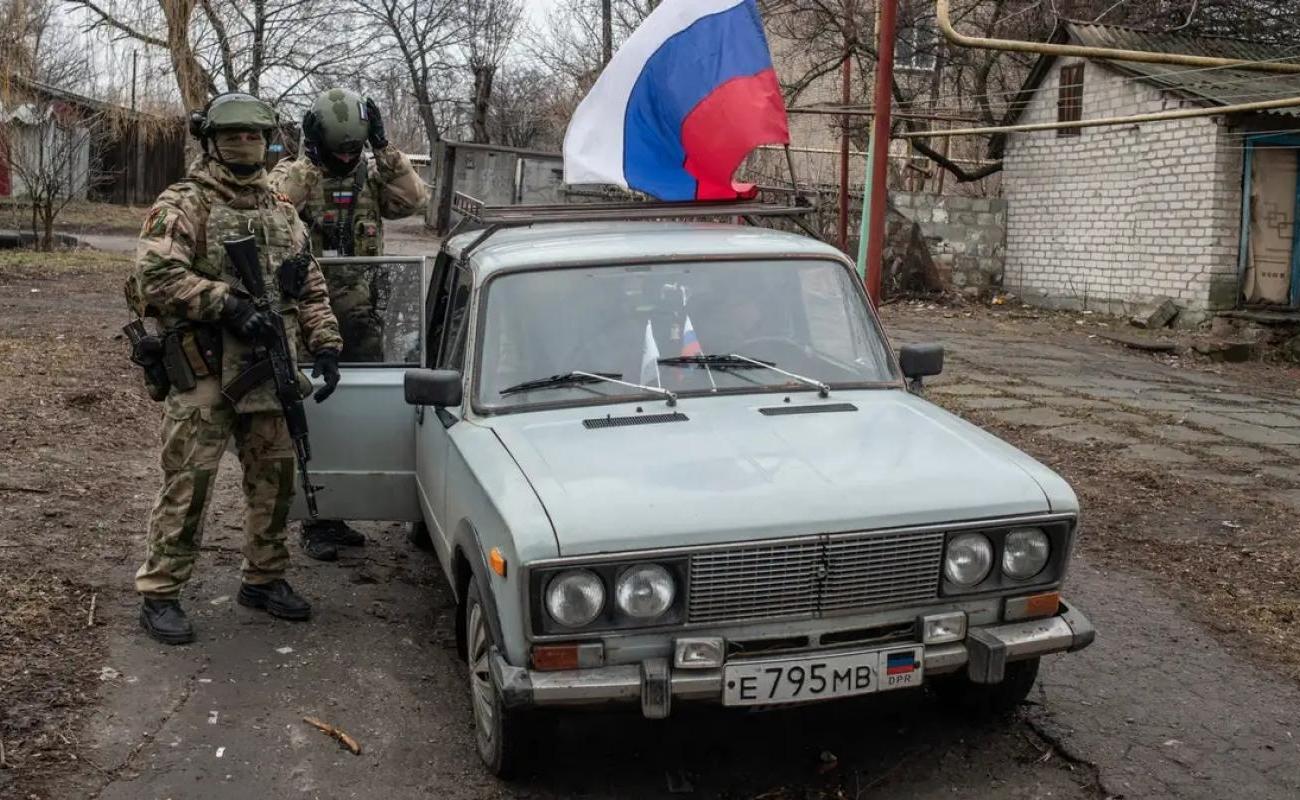UN Mission: Russia undermines freedoms in occupied territories

In a thematic report, the UN Human Rights Mission states: "The Kremlin deliberately violates rights and freedoms in the occupied territories of Ukraine."
Russia has created a "deafening atmosphere of fear" in the occupied territories of Ukraine, which it uses to control the population, suppress dissent, and further develop repression. This conclusion was reached by experts from the UN Special Monitoring Mission on Human Rights in a thematic report published on March 20th.
The UN Mission, which has been operating in Ukraine for the past 10 years, conducted over 2,300 interviews with victims and witnesses of human rights violations, as well as with human rights defenders, lawyers, medical workers, journalists, and representatives of the Ukrainian government since the beginning of the Russian invasion in February 2022. Its representatives have monitored court hearings and detention facilities in the territory controlled by Kyiv - meanwhile, the Russian Federation has denied researchers access to the occupied Ukrainian territories.
.
Systematic Approach
The report extensively analyzes the actions of the Russian occupying authorities over the past two years. The authors of the report rely on facts about numerous arrests, disappearances, torture, and threats to peaceful Ukrainian citizens by Russian military and security forces. In particular, it mentions 687 cases of arbitrary detention, 48 cases of sexual violence, 26 cases of on-site civilian executions, and the killing of 30 individuals in detention units. However, the actual cases of human rights violations and freedoms may be much higher, as emphasized in the document.
"Until December 31, 2023, Russian authorities initiated criminal investigations in only four cases of violations... Furthermore, in June 2023, the Russian Federation adopted a law effectively granting amnesty to Russian military personnel for an excessively large number of crimes," the investigative team's report states.
"UN experts note the impunity of military repression in the first weeks and months of the occupation, which instilled fear among the residents of the occupied territories, where authorities later formed under Russian control."
"Many people living in the occupied territories have been subjected to intimidation and repression, facing constant threats of violence, detention, and punishment, in a situation where no one has been held accountable for violations of rights and freedoms... The occupying authorities have abolished Ukrainian governance systems, administration, judiciary, and education, instead imposing the Russian system, silencing opposition and any form of dissent, suppressing manifestations of Ukrainian culture and identity by banning the Ukrainian language and Ukrainian-language media," the UN report states.
Rule Under Duress
Summarizing the processes of establishing and consolidating Russian power in Ukrainian territories, UN experts note that it is primarily based on coercion against civilians. Occupiers have forced Ukrainian officials, teachers, medical workers, and law enforcement officers to cooperate through systematic threats. The annexation of "new regions," the forced issuance of passports, and granting Russian citizenship effectively displaced all those who disagreed with Russian authority.
"Citizens of Ukraine living in the occupied territory without a Russian passport may be deported if their 'extremist activities' endanger national security," the authors cite new Russian laws. "Given the broad definition of 'extremist activities'... citizens may be at risk of deportation for expressing pro-Ukrainian views or criticizing official Russian narratives about the war."
Decoccupation and Reconciliation
Even after the deoccupation of large areas at the end of 2022, the effects of Russian rule are still felt in those communities.
"When Russian armed forces withdrew, they intensified military attacks on previously occupied territories... For example, in the city of Kherson, OHCHR recorded four civilian casualties during the occupation. However, shelling after the end of the occupation, until December 31, 2023, resulted in the deaths of 178 civilians and 716 injured... As a result of destruction, looting, and mining, people in communities where Ukraine regained control did not have adequate housing, stable utilities, food, and employment," the report states.
"In addition, communities require socio-psychological recovery, and their members seek justice for numerous violations of their own rights. 'Victims need prosecution mechanisms that go beyond criminal accountability and include measures aimed at promoting truth, reparations, rights, and the reintegration of people,' UN experts state."
"In the report, UN experts criticize Ukrainian authorities for violating civil rights during the persecution of residents of occupied territories for collaboration with the occupier. The monitoring mission calls the legislative definition of collaboration 'unclear and imprecise.'
'The law potentially criminalizes almost any work or business activity in the occupied territory, regardless of whether these actions have had negative consequences for the state,' experts warn."
"At the same time, the practice of holding Ukrainian police officers accountable for collaboration, in their opinion, contributes even less to reconciliation in communities. More than a quarter of criminal investigations examined in the UN mission's report were accompanied by arbitrary detention, torture, and mistreatment of suspects."
